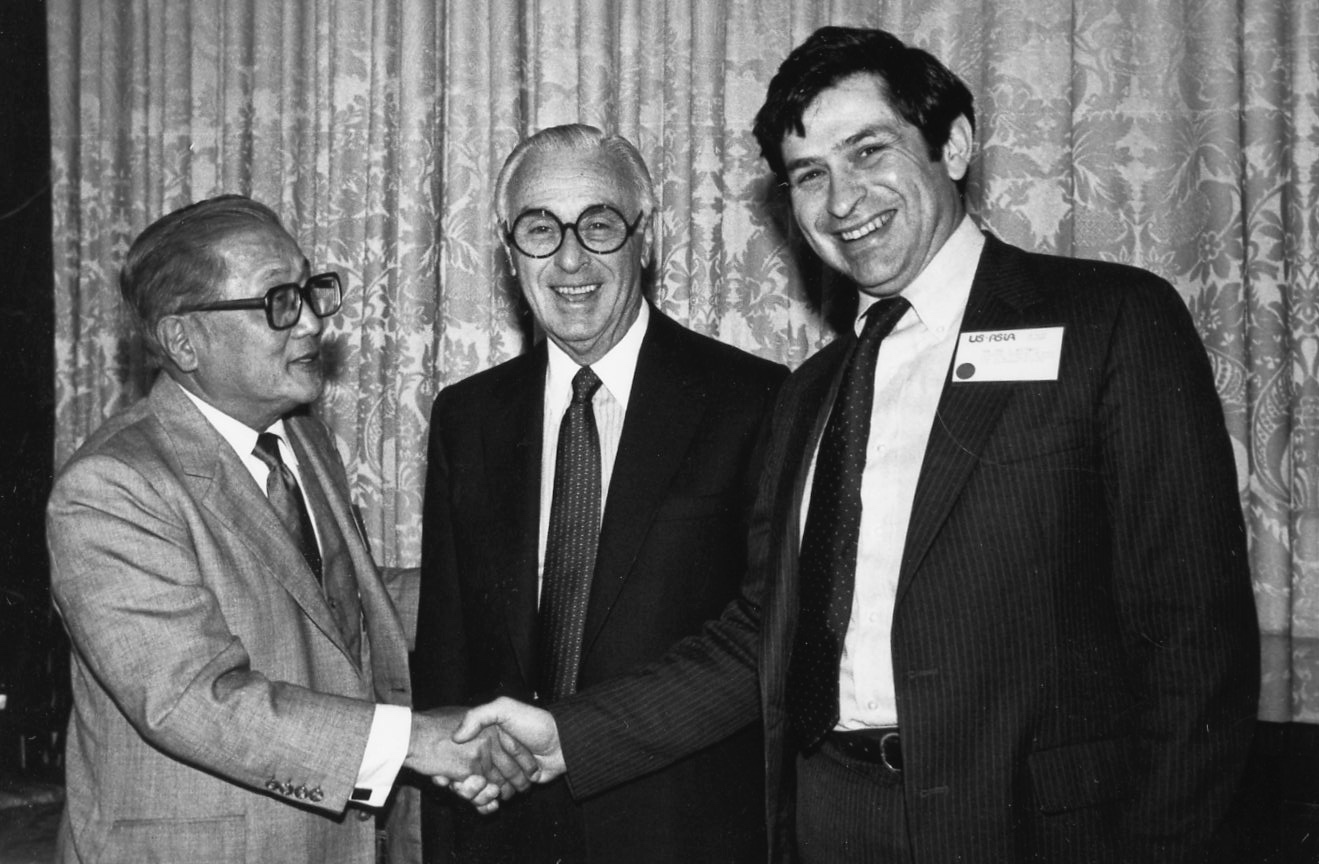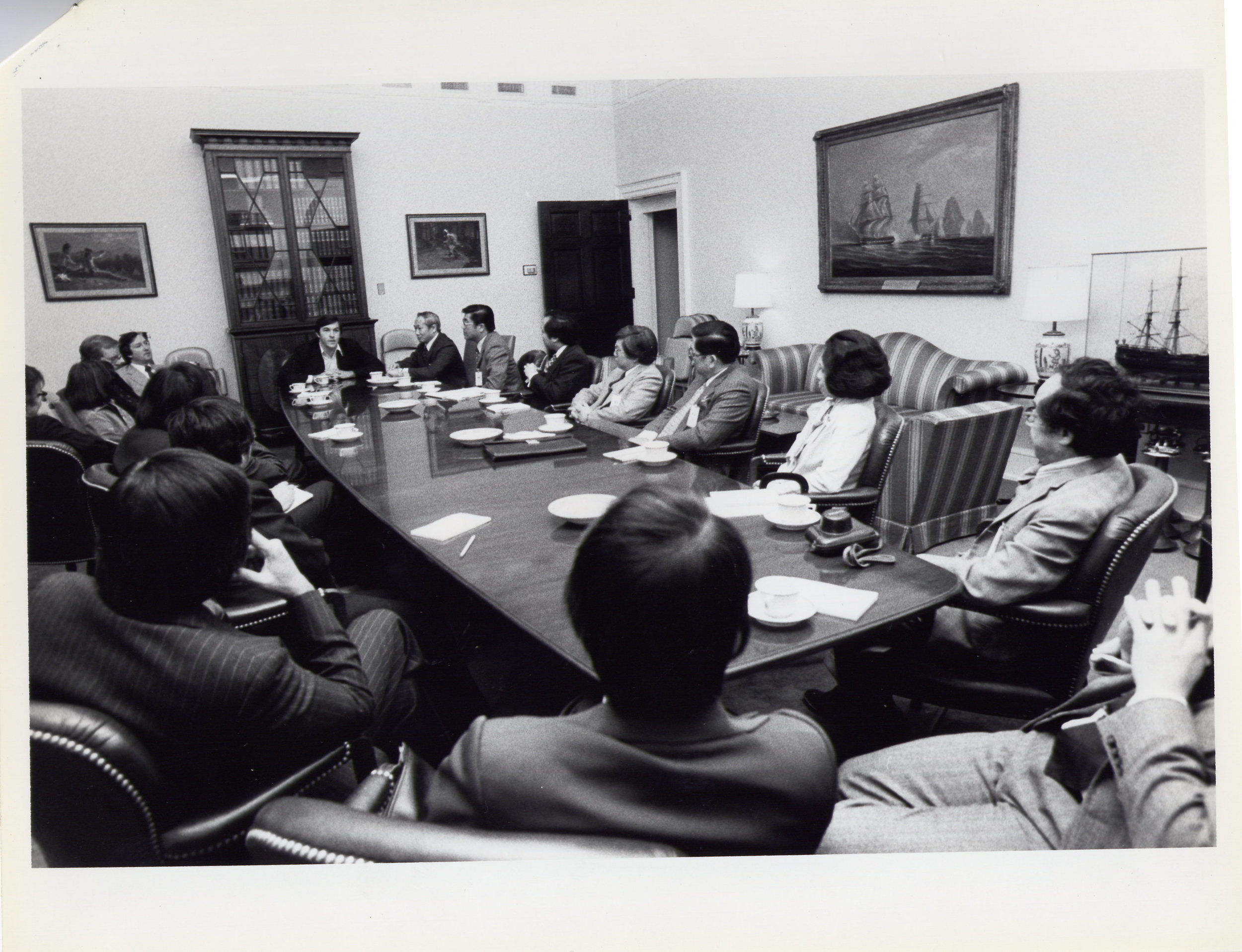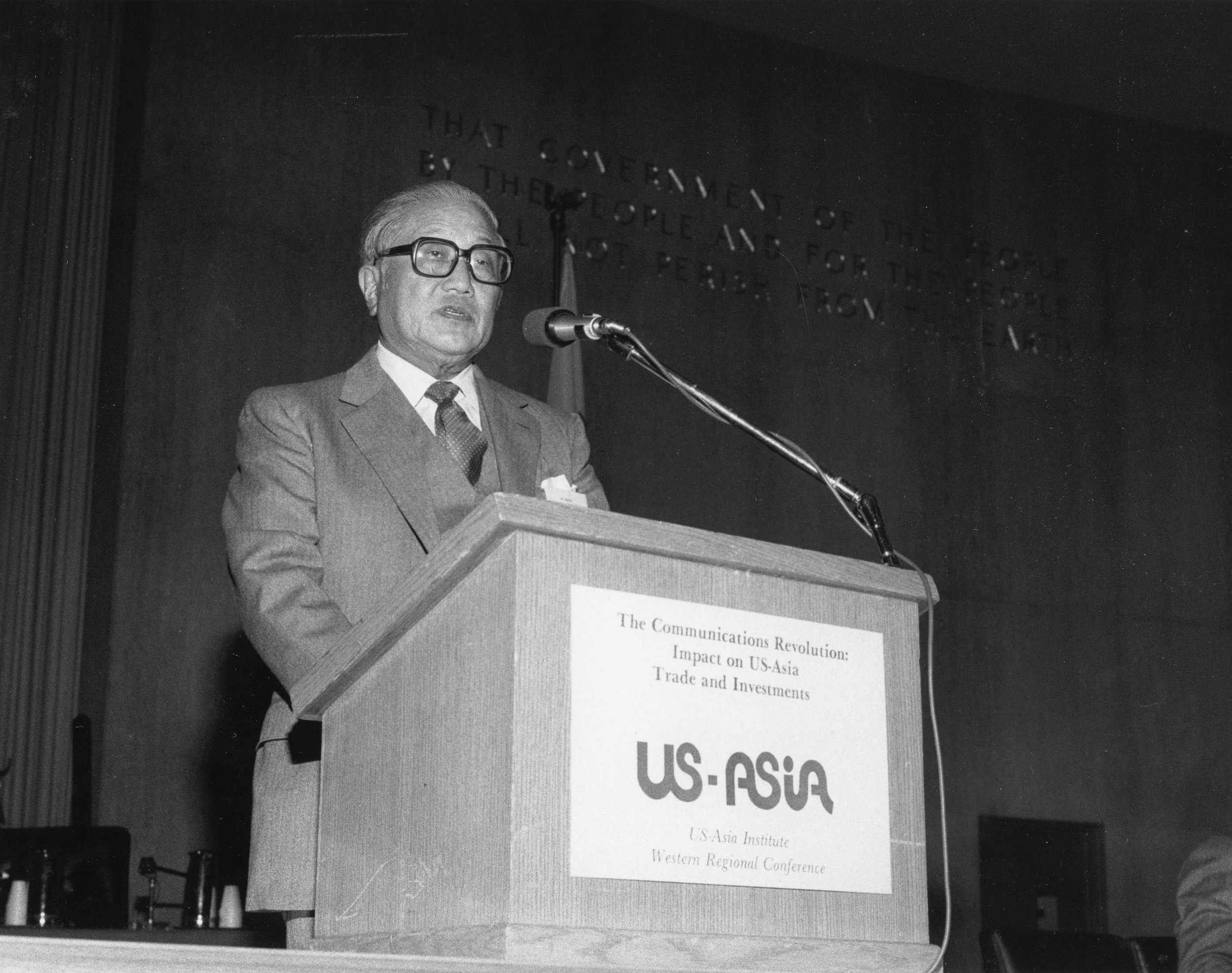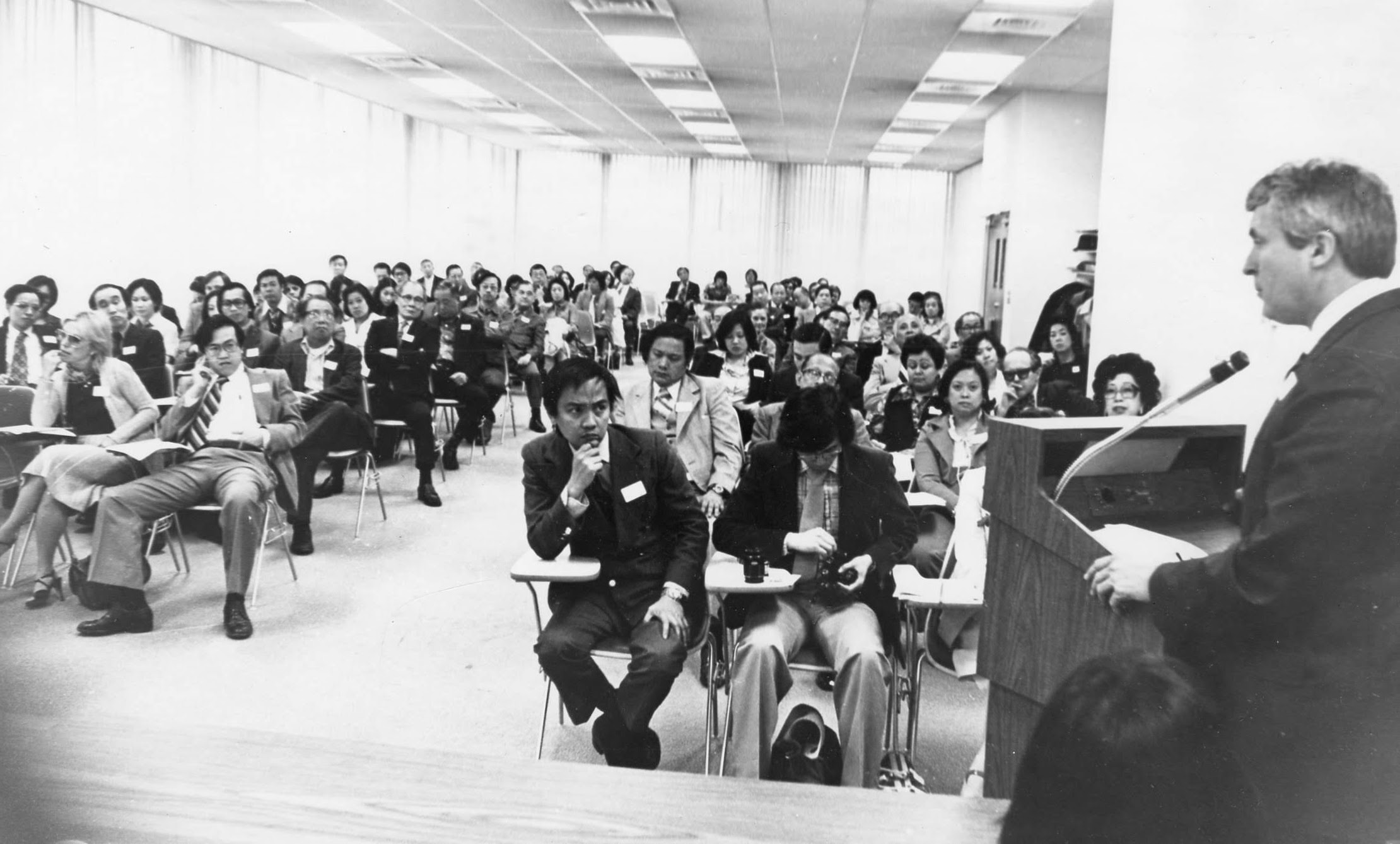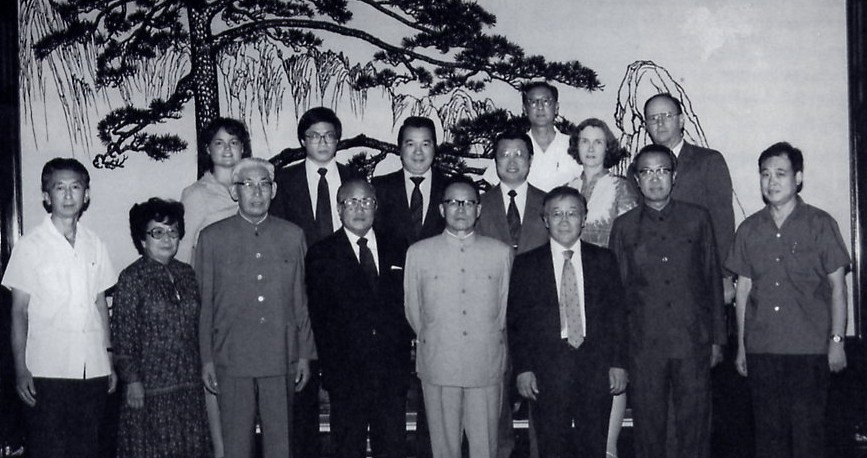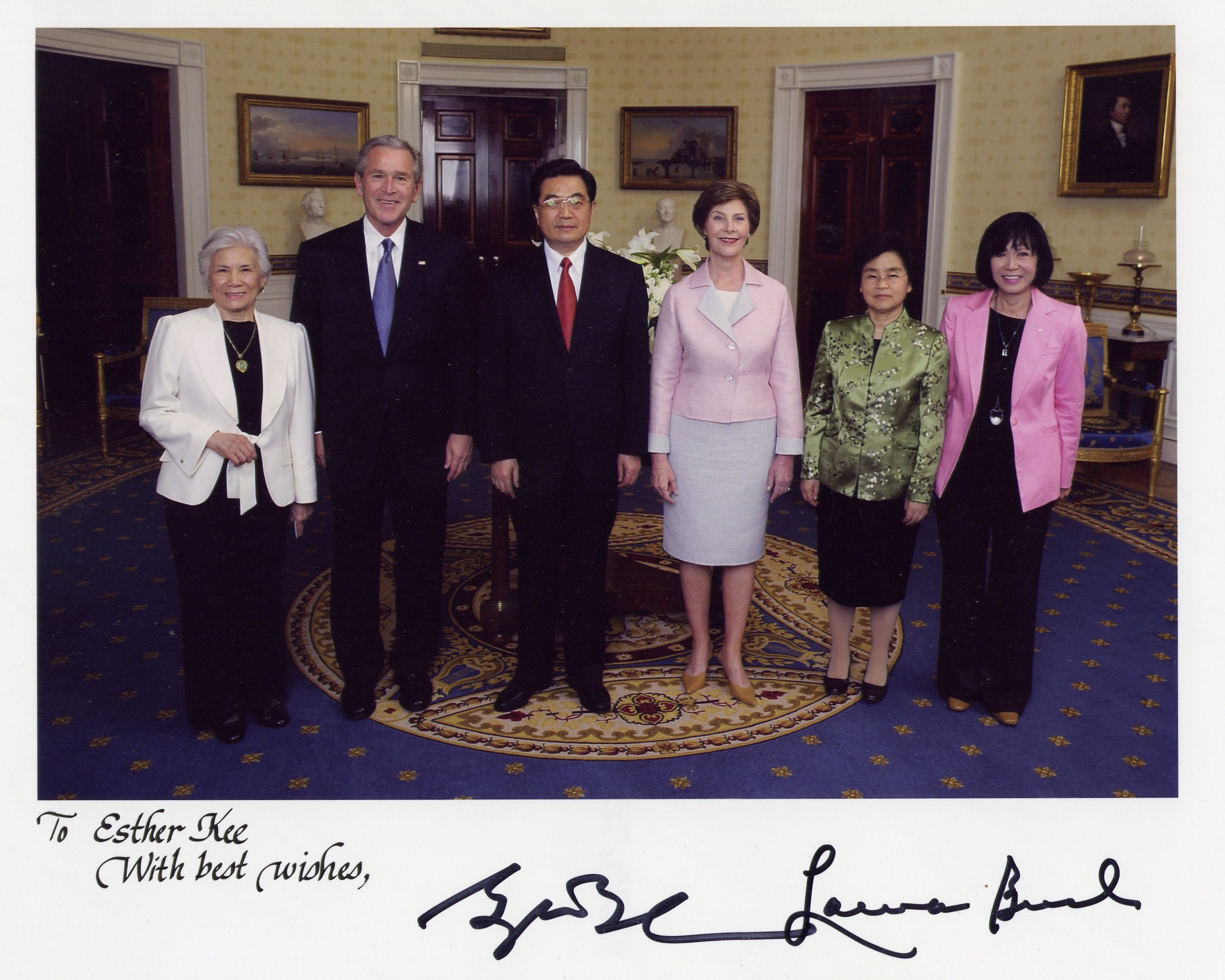Lady Rosalynn Carter, President Jimmy Carter, and Co-founders Esther G. Kee and Joji Konoshima at the White House in 1978.
The US-Asia Institute was co-founded by Joji Konoshima and Esther G. Kee following the first national gathering of representatives from Asian American communities at the White House in 1978. Though diverse, these communities shared a deep, common concern over the misconceptions and negative stereotypes of Asia held by many Americans. With the support of President Jimmy Carter and then Assistant Secretary of State for East Asian and Pacific Affairs, the Honorable Richard C. Holbrooke, the National Advisory Council for East Asian and Pacific Affairs was formed to provide input to the State Department on issues impacting East Asia. From there, the US-Asia Institute was established as a nongovernmental organization in 1979 to serve as an independent voice in the relationship.
President Jimmy Carter and Co-founder Joji Konoshima at the first US-Asia Institute National Leadership Conference.
In the United States, the Institute has built strong ties with the White House, other governmental agencies, nongovernmental organizations, and the business community. President Carter was the keynote speaker at the 1st US-Asia Institute Gala, held in May 1980. Between 1979 and 1990, Secretaries of State Edmund Muskie, Cyrus Vance, George P. Shultz, and James Baker III addressed international conferences organized by the US-Asia Institute and held at the US Department of State. Topics for these international conferences ranged from trade and investment to technological advancements and regional security. In Asia, many nations, principally the People’s Republic of China, Japan, Korea, and the countries of the Association of South East Asian Nations (ASEAN: Brunei, Cambodia, Indonesia, Laos, Malaysia, Myanmar, the Philippines, Singapore, Thailand, and Vietnam) have been eager to cooperate with the US-Asia Institute on international conferences and other programs.
Several of these nations host visits for US Congressional staff members under the Mutual Educational and Cultural Exchange Act. These visits serve to increase awareness, knowledge, and understanding of their country, their people, and the policies of the host nations. These delegations have high-level meetings with government officials, top scholars, and business leaders of these Asian nations to candidly exchange views on all topics of mutual interest. These trips offer significant benefits to staff members, allowing them to gain firsthand experiences in Asian countries, listen to the ideas of their counterparts and share their views, clarify misconceptions about Asia, and be exposed to the cultural and historical aspects of Asia.
To date, the Institute has organized more than 150 delegations to various countries of Asia, with 119 congressional members and staff trips to China. Indeed, this highlights an important strategy of the Institute. To make the most effective use of its financial support, the Institute has focused its attention on exchange programs, seminars, and briefings involving the US Congress. Consequently, the contribution that the US-Asia Institute has made to the formation of policies regarding US-Asia relations and facilitating conversations between US and Asian countries is invaluable. Today, with its offices on Capitol Hill and with more than 30 years of experience in addressing US-Asia policy issues, USAI is positioned to play an even more important role in fostering understanding between the US and our key partners in Asia.
Buoyed by its success over the past four decades, the Institute has decided to put its unmatched experience and expertise to far wider application, expanding the number of Congressional visits while adding state level, business, and industry-specific missions to various countries of Asia. Consequently, the USAI will broaden the scope and the range of issues it covers to include those that are likely to remain of the highest international interest including energy, international trade, information technology, transportation, telecommunications, security, and public health.




